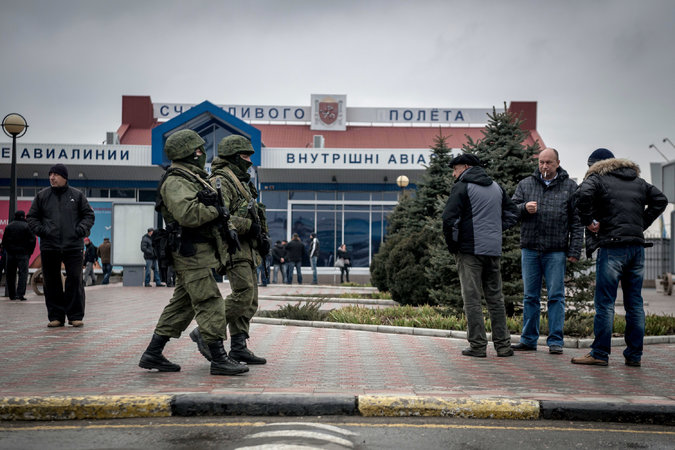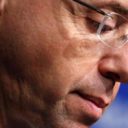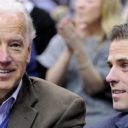

Armed men patrolled the street outside Simferopol’s airport in the Crimea region of Ukraine on Friday. Credit Sergey Ponomarev for The New York Times
Armed men were blocking the two main airports in the strategically imperative peninsula of Crimea on Friday in what the Ukraine Interior Minister called an “armed invasion” by Russia. The country asked the U.N. Security Council to intervene in the escalating conflict.
In Simferopol, which is the regional capital of Crimea, a number of masked armed men were taking up station at the international airport. They were dressed in camouflage and carrying assault rifles, but their military uniforms displayed no identifying insignia. It was not clear who they were and the soldiers declined to answer questions.
One of the soldiers, who identified himself only as Vladimir to an Associated Press photographer, said they were part of a “self-defense unit” that was making sure that no “fascists” would arrive from Kiev or elsewhere.
Ukraine’s National Security Council chief, Andriy Paruby, said that the soldiers’ activity in Crimea were not Crimeans themselves.
“This is either small extremist-separatist groups or military personnel from the Russian Black Sea Fleet,” he said.
Also, at a second airport called Belbek, which is used for military and some civilian flights, armed men took up additional positions. In a post on his Facebook page, the interior minister said that units believed to be affiliated with the Russian military had blocked access to the airport overnight, with some Ukrainian military personnel and border guards inside.
Avakov wrote that the men blocking the airport were also wearing camouflage uniforms with no identifying insignia, but he added, “They do not hide their affiliation.”
Meanwhile, Russia’s Black Sea fleet issued a staunch denial of involvement in the activity, saying, “No Black Sea Fleet units have moved toward (the airport), let alone taking any part in blockading it,” Interfax quoted a spokesman for the fleet as saying.
In Kiev, the speaker of Parliament, Oleksandr V. Turchynov, who is now the acting president of Ukraine, convened a meeting of the National Security and Defense Council to discuss the situation in Crimea.
Announcing the meeting in Parliament, Mr. Turchynov said, “Terrorists with automatic weapons, judged by our special services to be professional soldiers, tried to take control of the airport in Crimea.”
The Ukraine Parliament adopted a resolution demanding that Russia halt steps it says are aimed against Ukraine’s sovereignty and territorial integrity, and called for a U.N. Security Council meeting on the crisis.
The recent developments follow an order by Russian President Vladimir Putin to start large-scale military exercises in what many observers view to be a blatant show of force or even possible prelude to a Russian intervention in Ukraine. Armed men seized control of government buildings in the Crimea region of Ukraine, raising a Russian flag over a barricade. U.S. Secretary of State John Kerry warned Russia it would be a “grave mistake” to intervene militarily in Ukraine.
Police officers, who are supposed to be under the control of the Ministry of Interior in Kiev, made no effort to control the crowds and in some cases reportedly applauded the pro-Russia sentiment. The police stood motionless as armed militants seized government buildings overnight and erected a barricade outside the regional legislature.
Russia also has granted shelter to Ukraine’s fugitive president, Viktor Yanukovych, who broke his silence Thursday. In a statement he said he remains the country’s legitimate leader and that the actions of the Ukraine Parliament to strip his powers were illegal. He is scheduled to hold a news conference on Friday in the Russian city of Rostov-on-Don.
Ukraine’s Prosecutor General said in a statement Friday it is seeking extradition of fugitive former president Yanukovych, who is wanted on suspicion of mass murder in last week’s violent clashes between protesters and police, in which more than 80 people were killed.
The region and the conflict may be a bit difficult for followers to understand considering how fast events have occurred, so here is a bit of background.
Russian President Vladimir Putin has long dreamed of pulling Ukraine, a country of 46 million people considered the cradle of Russian civilization, closer into Moscow’s orbit to resemble what was a confederation of former satellite states.
As far as loyalties, Ukraine’s population is divided between those with loyalty to Russia and the West. The region of Crimea, which was seized by Russian forces in the 18th century under former praised ruler, Catherine the Great, was once the crown jewel in both Russian and the former Soviet empires.
The Crimea region in discussion became part of Ukraine in 1954 when Soviet leader Nikita Khrushchev transferred jurisdiction from Russia, a move that was a mere symbolic formality until the Soviet Union collapsed in 1991. Following those events, which were as rapid as the events today, Crimea found itself truly under the control of an independent Ukraine.
Now, in an effort to prop up the new government, who is attempting to run a country in financial distress, the International Monetary Fund has said it is “ready to respond” to Ukraine’s bid for financial assistance. The European Union is also discussing emergency loans for a country that is the chief conduit of Russian natural gas to western Europe.
Ukraine’s finance ministry has said it needs $35 billion over the next two years to avoid default. Sec. Kerry also announced that the Obama administration was planning $1 billion in loan guarantees for Ukraine and would consider additional direct assistance for the former Soviet republic satellite state.
Kerry’s comments followed others made by White House Press Secretary Jay Carney, who said Monday that the U.S. government will provide Ukraine foreign aid, with certain conditions, though Carney curiously said it is to “strengthen its social safety net.”







